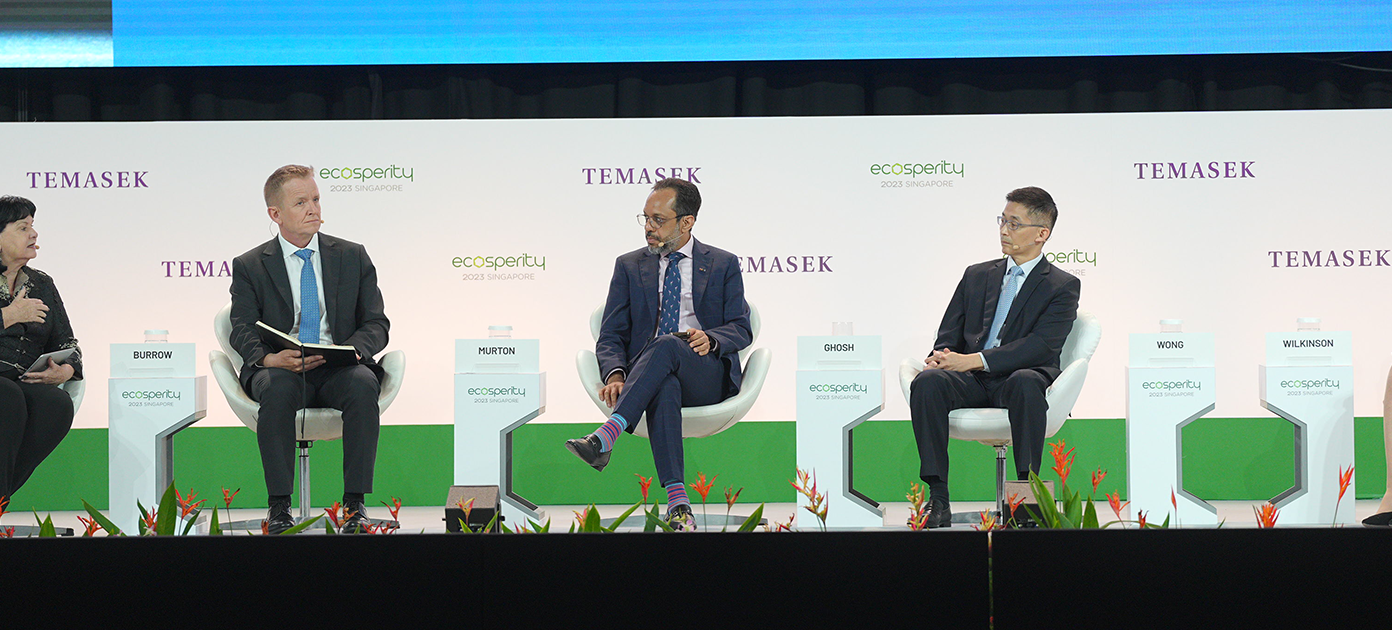Just transition cannot be afterthought in S-E Asia’s decarbonisation plans, panellists say


Companies rolling out decarbonisation efforts must realise that a just and inclusive transition is critical to successful decarbonisation in South-east Asia, panellists at sustainability conference Ecosperity said on Tuesday (Jun 6).
A just transition refers to the concept of a fair and inclusive transition to a low-carbon economy, where social and economic opportunities of climate action are maximised and no one is left behind.
“We’re talking about accelerating decarbonisation with breakthrough action, but unfortunately, people and communities always seem to come at the tail end of that conversation,” said moderator Angela Wilkinson, secretary-general and chief executive officer of the World Energy Council.
First and foremost, there is a need to make decarbonisation politically possible. This means ensuring that the switch to low-carbon systems is made with consideration to how local stakeholders, including unions and workers, will be affected by the transition.
John Murton, senior sustainability advisor at Standard Chartered, brought up the example of the coal mining sector in South Africa, where a multilateral Just Energy Transition Partnership initiative to decarbonise the country’s energy sector is underway. Switching to low-carbon fuels there will not only affect the coal mining community, but also workers in all other industrial areas in the region, he said.
It was important, in that case, to explain to stakeholders that delaying the energy transition would cost more jobs across the South African economy as well as local trust in the transition, he said.
Sharan Burrow, former general secretary of the International Trade Union Confederation, said that success is not possible if affected stakeholders are not addressed.
“If we have stranded workers and stranded communities, then it’s a recipe for failure,” she said. Without trust in the process and transparency in transition planning, it is difficult to gain the confidence of people as well as financial transactions and legislative functions.
She added: “So the challenge here is, are we prepared to put workers and their communities at the table from the get go?”
Inclusive dialogue promotes collaboration and generates partnerships in different sectors to get the job done, Burrow said. There is a need to consider all stakeholders, and business leaders must be open to the idea that “some other people might have good ideas”.
Burrow advocated for structured dialogues that are formalised, but noted that such institutions are not common in South-east Asia. Similarly, the use of technology pools and intellectual property banks can enable beneficial technology to be shared widely, while properly rewarding innovators.
“Why is it that we have big brains here, you know, our room has got a whole range of ideas about how to do this, I’ve heard it many times. But we don’t have technology tools or an IP (intellectual property) bank that allows us to share the technology, reinforce the cost and the dividend to those who have generated it, but allow others to build at scale,” she said.
Arunabha Ghosh, CEO of the Council on Energy, Environment and Water, described energy transition as a case of workers in the fossil fuel industry being pitted against those in the renewables sector, and making sure all sides meet in the middle. It is important to address the fear of becoming obsolete, he added.
“Some early results from a survey we’ve been conducting suggests that workers are quite uncomfortable leaving their existing job and then entering into a reskilling program. So could it be possible that you begin the retraining while they are on the job?” he asked.
Panellists also touched on the idea of using new technologies to make energy access more equitable.
Murton said that low-carbon electricity generation is “very modular technology”, which can be scaled down to enable rapid adoption. Consumers who “were never going to be reached by the grid” can be given access to energy, bringing about a range of social and health benefits.
This is particularly important in South-east Asia, where countries are at very different stages of development, said Wong Kim Yin, group president and CEO of Sembcorp Industries: “We are a wealth and darkness region, when it comes to resources.”
To Wong, the greatest “missing opportunity” in South-east Asia is regional interconnects. If countries are able to resolve their differences, matching demand and supply, it will unlock the region’s wealth of resources.
Murton emphasised the role of multilateral development banks in supporting the financing of renewables. “Blended finance with the development banks… is hugely important if we’re to mobilise that finance in the timescale necessary to hit our climate goals,” he said.
While private financing is critical to scale up support for energy transitions, public-sector involvement is also important to ensure that the transition is equitable, Murton said. For instance, modular renewable energy solutions could become privatised, widening gaps between individuals with and without access to resources, he added.
Beyond achieving a just transition, stakeholders must not lose sight of the fact that the transition must ultimately be completed. That means an eventual end to the financing of coal and fossil fuels, Burrow said.
The key, Burrow said, is to focus on growing and realising the benefits of low-carbon solutions, instead of prolonging the viability of fossil fuels.
“Please, let’s look at what we could do in fossil fuels generally, if we repurpose the trillions of dollars in subsidies and say, ‘You can keep the subsidies, but invest in the people and planet on a more renewable basis’,” she said.
Source: The Business Times © Singapore Press Holdings Limited. Permission required for reproduction.